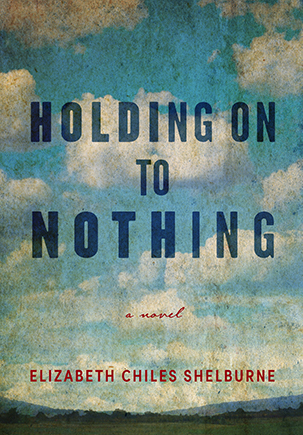
Holding On to Nothing
By Elizabeth Chiles Shelburne ’01
Blair
There are books you read while peeking through your fingers with thudding heart and whispered prayer; books that cause you to talk out loud in public; books you fling across the room, frustrated, then retrieve on your knees, begging for readmittance, because oh! you cannot live without knowing what happens next. Elizabeth Chiles Shelburne ’01’s novel Holding On to Nothing is one such book, and the 10 hours I spent reading it cover-to-cover were an emotional rollercoaster of hoping, chiding and a little crying. Most of all, I wanted to hug Shelburne’s characters and save them from their relentless lives.
Jeptha Taylor gave up on himself at age 10, while sneaking a stolen doughnut under a table as kindly church ladies laid out the after-service snack. Listening to them gossip about his family, he realized, “No matter what he did, he’d always be a Taylor” and henceforth set about building himself a name worthy of his family’s terrible reputation.
No one in Jeptha’s Tennessee town has thought of helping him avoid repeating the lives of his grandfather and father. Instead, the town is content to prophesy his doom. We find him in his early 20s as exactly what everyone said he would become: a drunk who cannot keep a job, and a womanizer bent on taking “advantage of the loose morals of any number of girls named Chastity and Honor.” All that is stopping him from going off the cliff is his mandolin, his dog, a tobacco farm and the smile of the girl he has loved since he was 16, Lucy Kilgore.
Lucy is the child the town has decided to save. Orphaned at 14, she is taken in by her mother’s best friend, LouEllen, who steers her toward her parents’ dream for her: escape to college. The whole town wants this for her, too: “She had been chosen as the one who would leave, a vessel for whatever dreams of escape that flitted through their minds from time to time, and then were dismissed as hopeless....”
Now 20 and working at Judy’s bar, Lucy has saved enough to leave. She is halfway through packing up her life when Jeptha walks into the bar for a gig with his band. Lucy has never paid Jeptha more than a passing thought. But on this night, she cannot help smiling at him, or downing free shots of whiskey, or going out back with Jeptha, to his car. The sex is bad, and feels worse when a sobered-up Lucy discovers she is pregnant.
